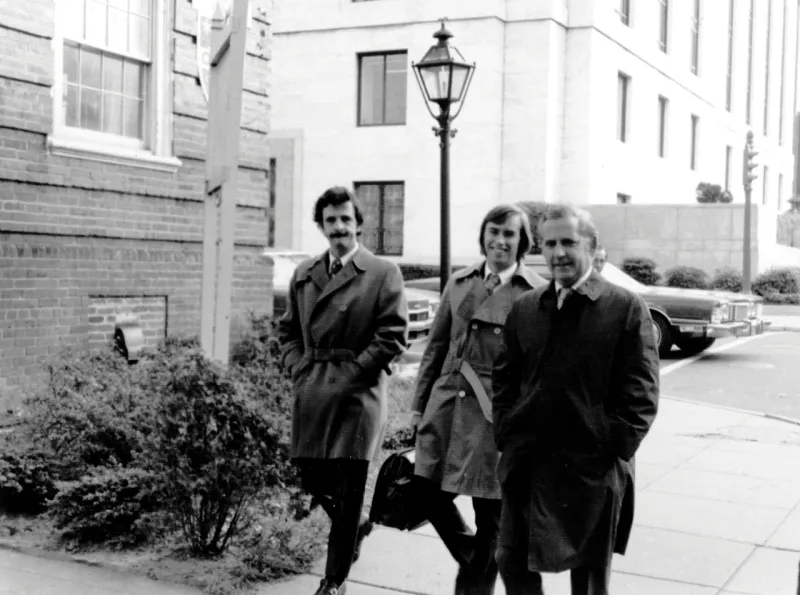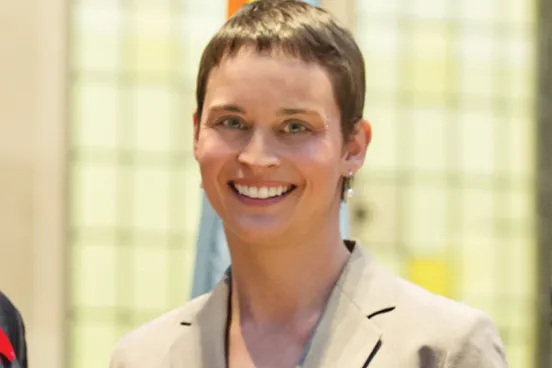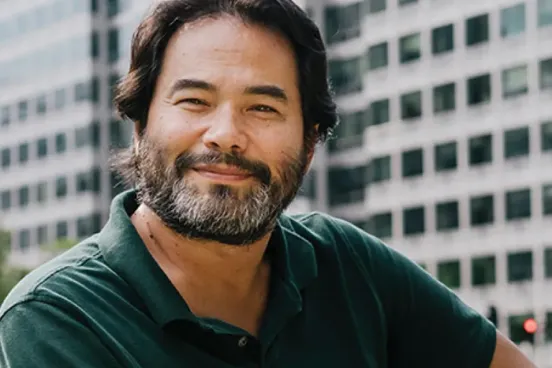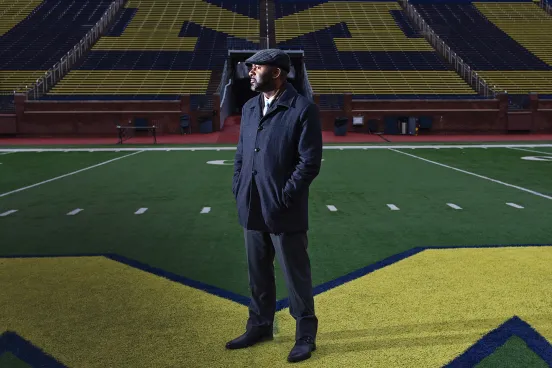
There should be more lawyers like Charles “Chuck” Barnhill, says his longtime friend and former client, Wayne Kennedy. So Kennedy created a scholarship fund at Michigan Law to help train the next generation of lawyers at the place that trained Barnhill.
“Chuck is the type of lawyer who should be held up as an example of how lawyers and the legal system should work,” says Kennedy, who, with his wife, Lorelei, has made a gift to endow the Charles Barnhill Jr. Scholarship Fund at Michigan Law. “I hope that the students who receive scholarships through the fund will be inspired by him, because Lorelei and I have always admired him.”
Kennedy first met Barnhill, ’68, in 1972. Although just a few years out of law school, Barnhill and some friends had decided to open their own law firm in Chicago, and they focused their practice on civil rights and employment discrimination lawsuits. Kennedy, an employee of the Office of Equal Opportunity (OEO) in Chicago, was looking for representation because he believed his efforts to organize a union had led to his termination—without a disciplinary hearing. Barnhill had developed a reputation for effectively handling prior hearing cases related to welfare benefits and other matters, so colleagues recommended that Kennedy meet with him about his case. “The Civil Rights Act wasn’t very old at that time, and most of the litigation was taking place down south,” says Barnhill. “We wanted to focus on cases up north, so Wayne’s goals and my goals were the same.” Says Kennedy, “We clicked right away.”
Kennedy’s case ultimately ended up in the U.S. Supreme Court as Arnett v. Kennedy, and the Court held that federal employees were entitled to a full hearing at some point in the discharge process. “We were not wealthy or powerful people, so I was very proud that we made this kind of effort at the Supreme Court, and that we had a cause that prevailed over time,” Kennedy says.
He credits Barnhill’s tenacity in that fight and in other matters involving the OEO. Kennedy and his union colleagues previously had filed grievances that were ignored by management, but Barnhill made sure their complaints were heard—and often upheld. “Until we found Chuck, we were on the defensive. He was an equalizer,” Kennedy says.
Kennedy and his wife eventually moved to California, where they built a successful career in real estate. But they never forgot the pivotal role that Barnhill played early on. “A lot of people just throw up their hands when they talk about lawsuits because it feels like such a quagmire,” says Kennedy. “But Chuck makes the system work while also being an ethical guy.”
Their wish to say thank you through the scholarship fund caught Barnhill by surprise. “I don’t know of another client who has done that for their lawyer,” he says. “I was flabbergasted, touched, and thrilled.”
Barnhill’s advice to young lawyers who hope for similar client approval is simple: “Don’t just look at the cases; do your best to understand your clients and empathize with their situation.”—AS






